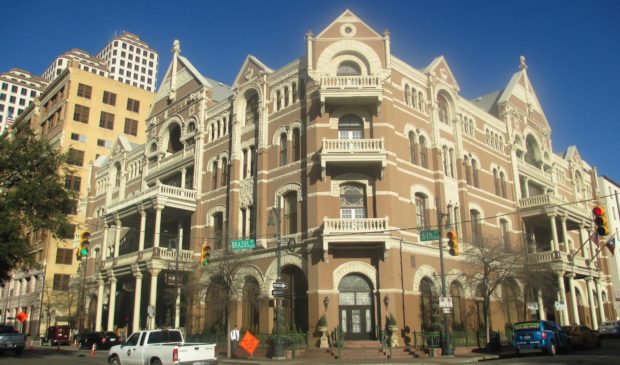Tourism Commission pushes for broader use of hotel tax dollars
Friday, December 14, 2018 by
Chad Swiatecki Austin’s Tourism Commission wants to see the city push for more latitude in how to spend local hotel occupancy tax dollars, with an eye toward next year’s session of the state Legislature.
At Monday’s meeting, the commission approved a recommendation for City Council to amend the city’s legislative agenda for the 2019 session to advocate for bills that could allow HOT funds to be used for programs related to services for the homeless, live music, arts and watershed preservation.
The amendment from Commissioner Michael Searle would also make it a priority for the city to collaborate with other major metro areas in the state with large tourism industries on legislation that would expand the possible uses of local hotel tax funds.
In October, City Council passed its official legislative agenda for the 2019 session, with dozens of priorities under broad categories such as public infrastructure, tax reform, education and governmental transparency.
“All proposed changes in hotel tax use are made by local or state hotel lobbying groups, and our city government relations office has no direction in what they should be doing in how Austin spends its local hotel taxes,” Searle said. “My amendment is to say let’s get more control on the local level so we can address issues that are unique to Austin. Let’s open this up so we can use it how Austin wants to use it and not be limited to what the hotel lobby says we can and cannot do in Austin.”
The state tax law that governs hotel taxes has a fairly narrow scope for how those funds can be used at the local level, with service of bond debt for convention centers and efforts closely related to tourism promotion as the main permitted spending categories. In recent years, Austin leaders have worked to find new ways to use the roughly $100 million in local funds generated annually by the tax.
Homelessness has emerged as one of the biggest issues for City Council. The city and local service organizations are keen to find ways to provide housing and other relief services for the city’s growing homeless population.
Mayor Steve Adler and others have tied the issue into a proposed expansion of the Austin Convention Center, with area hotels agreeing to levy a 1 percent tax on themselves – with that money going toward homeless relief programs – if the expansion is approved, because they expect to see an increase in business bookings as a result.
Members of the Tourism Commission, which first met in August, have been largely divided on the expansion issue, with commissioners aligned with the tourism and convention industry and in favor of the expansion butting heads with commissioners who view the expansion as unnecessary.
Even with that ideological split, most were in agreement Monday that local governments should be allowed more latitude in using hotel tax dollars to address local issues.
“If you look at (Tax Code chapter) 351 it’s been getting narrower every year in terms of how cities can spend their hotel receipts,” Commissioner John Riedie said. “Lots of cities make carve-outs for themselves, so why shouldn’t we? I’d like to see Austin go for our own specific uses and carve out for homelessness or carve out for live music.”
Commissioner Ed Bailey, who voted against the amendment, said he wants the commission to focus more on finding ways to increase tourism spending in Austin rather than on how to allocate hotel tax funds, which have been shown to be leveling off recently after years of steady growth.
“I haven’t heard us talk about so far what our responsibilities are to help grow the tourism industry in Austin,” he said.
“I feel like we spend half the meetings figuring out how we can parse money to spend on other parts of the city,” he continued. “I do agree that we cross into general administration with some of the aspirations that are discussed, but I don’t think we’re serving our responsibility on talking about the state the industry is in right now and what we need. We’re always just looking at how we can carve up the HOT tax.”
Photo: No machine-readable author provided. Billy Hathorn assumed (based on copyright claims). [CC BY 3.0], via Wikimedia Commons.
The Austin Monitor’s work is made possible by donations from the community. Though our reporting covers donors from time to time, we are careful to keep business and editorial efforts separate while maintaining transparency. A complete list of donors is available here, and our code of ethics is explained here.
You're a community leader
And we’re honored you look to us for serious, in-depth news. You know a strong community needs local and dedicated watchdog reporting. We’re here for you and that won’t change. Now will you take the powerful next step and support our nonprofit news organization?




